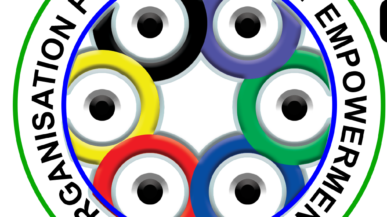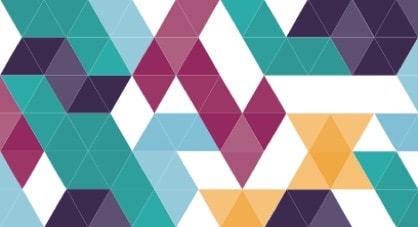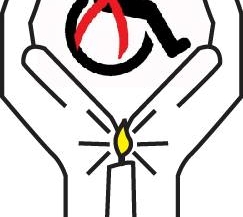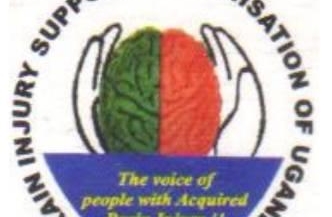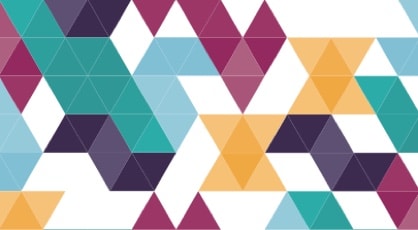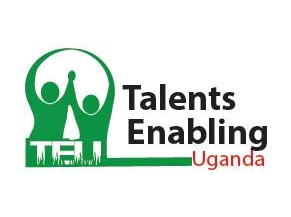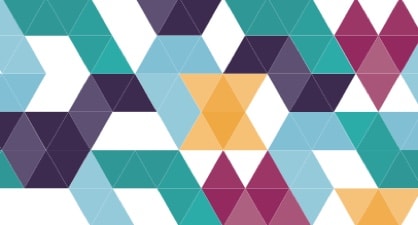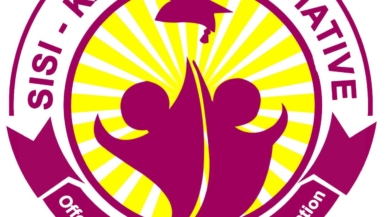Call for proposal
SPRING UP
V-21196-UG-EM
-
Grant amount
25000Project Duration
12 - 18 MonthsClosing date
31 May 2022 -
-
-
Grants
Media reports and anecdotal evidence abound globally to highlight the negative effects of the COVID-19 pandemic on rightsholders including gender-based violence. After the first COVID-19 case was officially confirmed in Uganda in March 2020, the government put in place some of Africa’s most stringent nationwide lockdown measures; Schools and businesses were closed, public gatherings banned, road and rail travel restricted, and a night-time curfew introduced. The long-term impacts of the lockdown measures on people’s social and economic status, education, health and general wellbeing remain to be seen. Most of the interventions for Covid response have been “top-down” and may not have been appropriate to vulnerable groups in the communities.
This Empowerment grant is meant for (informal) groups or organizations, mainly rightsholder-led groups, to build, strengthen and enhance their capacity of lobby and advocacy. The Voice rightsholder groups and their organizations need to be in the driving seat, whether leading on their own, with allies, or exploring and co-creating solutions with those in power. We would like to work with organisations and the rightsholders they serve proposing innovative interventions to SPRING UP amidst the recovery from COVID-19 pandemic.
“Types of interventions under this grant may include, transformative leadership, confidence and skills building to work against stigmatisation of rightsholders, innovative, home grown strategies in mobilizing key state agencies at national and local level and developing strategic partnerships with mainstream civil society, technical assistance, mentorship and coaching for community champions drawn from the rightsholder groups or among parliamentarians to support their work in creating an enabling environment for Voice focus rightsholder group”.
Funding available is up to €25,000 and the lifetime of the projects under this grant should be for a period between 12-18 months.
What we are looking for
Locally registered Ugandan organisations/coalition/consortium that wants to creatively lobby and advocate for participation of Voice rightsholders in key decision making processes, in policy formulation and the fight for social justice.
Voice in Uganda will prioritise collaborations among organisations led by or representing marginalised communities. We will have preference for projects that are truly committed to put Voice rightsholders in the lead.
Priority is given to applications led by organisations that represent or work on, for, and/or with the following rightsholder groups:
- Vulnerable elderly and young people
- Indigenous groups and ethnic minorities
- LGBTI People
- People with disabilities
- Women facing exploitation, abuse, and/or violence
Intersectionality is at the very heart of Voice. Therefore, we have a strong preference for selecting projects that intend to work with more than one of the Voice rightsholder groups to address overlapping or cross-cutting challenges and promote inter-and/or intra-group solidarity.
The proposed projects should focus on at least one or all of the following impact themes:
- Improved access to (productive) resources such as land, and employment,
- Improved access to social services, particularly health and education, and
- Fostering space for political participation and citizen engagement
Who to fund
Voice in Uganda would like to consolidate its work and create synergies in engagement, harness and leverage benefits from previous investment.
Applications will be accepted from ONLY locally registered not-for-profit local organisations working in the following districts: Gulu, Amuru, Nwoya, Omoro, Lira, Oyam, Kole, Masindi, Hoima, Kyegegwa, Ntoroko, Kyenjojo, Kabarole, Lyantonde, Mbarara, Sheema, Wakiso, Mubende, Mityana, Masaka, Mpigi, Kayunga, Mbale, Pallisa, Iganga, Bugiri, Kamuli, Jinja, Butaleja, Kaliro, Mayuge.
Applicants registered outside these areas are nevertheless eligible to apply as far as they have a project base/office in the selected areas and can provide the intervention there without undue travel cost on Voice. International organisations are NOT eligible to apply as lead organisations but can be co-applicants in case of consortium applications.
What will not be funded
Voice is a non-institutional development fund and does not support any of the following:
- Infrastructure building;
- Purchase of heavy-duty equipment (transportation vehicles, agricultural machines, security equipment);
- Humanitarian COVID-19 response;
- Disaster relief; and
- Political campaigning
From the numerous applications received the following grantees have been successful as part of this Call for Proposals. If you like to join Voice please see the current list of open Calls for Proposals Uganda
Uganda![Key and Vulnerable Populations Empowerment Project in Lyantonde]()
Key and Vulnerable Populations Empowerment Project in Lyantonde
Organisation for Community Empowerment (OCE)Uganda![Baruuli-Banyala for youths’ employment and self-reliance in Kayunga District]()
Baruuli-Banyala for youths’ employment and self-reliance in Kayunga District
Bukolooto Mosque and Community Development Association (BMCDA)Uganda![Standing up for inclusion in social services]()
Standing up for inclusion in social services
Masaka Association of Persons with Disabilities HIV/AIDS (MADIPHA)Uganda![Make Every Voice Heard in Health Services]()
Make Every Voice Heard in Health Services
Center for Disability Rights, Research & Governance (CEDIG)Uganda![Advocacy for Inclusive Employment of Persons with Disabilities in Kayunga District]()
Advocacy for Inclusive Employment of Persons with Disabilities in Kayunga District
Brain Injury Support Organization Uganda (BISU)Uganda![Cancer screening for Ntoroko sex workers]()
Cancer screening for Ntoroko sex workers
Kabarole Hospital Initiative on Women under Exploitation (KHIWE)Uganda![Solidarity with Teenagers – Uganda (SWT-U)]()
Solidarity with Teenagers – Uganda (SWT-U)
Teenage Mothers and Child Support Foundation (TMCSF)Uganda![Youth and Women Economic Empowerment Project]()
Youth and Women Economic Empowerment Project
Voice of Hope and Restoration Outreach Uganda (VOHARO)-
About
Media reports and anecdotal evidence abound globally to highlight the negative effects of the COVID-19 pandemic on rightsholders including gender-based violence. After the first COVID-19 case was officially confirmed in Uganda in March 2020, the government put in place some of Africa’s most stringent nationwide lockdown measures; Schools and businesses were closed, public gatherings banned, road and rail travel restricted, and a night-time curfew introduced. The long-term impacts of the lockdown measures on people’s social and economic status, education, health and general wellbeing remain to be seen. Most of the interventions for Covid response have been “top-down” and may not have been appropriate to vulnerable groups in the communities.
This Empowerment grant is meant for (informal) groups or organizations, mainly rightsholder-led groups, to build, strengthen and enhance their capacity of lobby and advocacy. The Voice rightsholder groups and their organizations need to be in the driving seat, whether leading on their own, with allies, or exploring and co-creating solutions with those in power. We would like to work with organisations and the rightsholders they serve proposing innovative interventions to SPRING UP amidst the recovery from COVID-19 pandemic.
“Types of interventions under this grant may include, transformative leadership, confidence and skills building to work against stigmatisation of rightsholders, innovative, home grown strategies in mobilizing key state agencies at national and local level and developing strategic partnerships with mainstream civil society, technical assistance, mentorship and coaching for community champions drawn from the rightsholder groups or among parliamentarians to support their work in creating an enabling environment for Voice focus rightsholder group”.
Funding available is up to €25,000 and the lifetime of the projects under this grant should be for a period between 12-18 months.
What we are looking for
Locally registered Ugandan organisations/coalition/consortium that wants to creatively lobby and advocate for participation of Voice rightsholders in key decision making processes, in policy formulation and the fight for social justice.
Voice in Uganda will prioritise collaborations among organisations led by or representing marginalised communities. We will have preference for projects that are truly committed to put Voice rightsholders in the lead.
Priority is given to applications led by organisations that represent or work on, for, and/or with the following rightsholder groups:
- Vulnerable elderly and young people
- Indigenous groups and ethnic minorities
- LGBTI People
- People with disabilities
- Women facing exploitation, abuse, and/or violence
Intersectionality is at the very heart of Voice. Therefore, we have a strong preference for selecting projects that intend to work with more than one of the Voice rightsholder groups to address overlapping or cross-cutting challenges and promote inter-and/or intra-group solidarity.
The proposed projects should focus on at least one or all of the following impact themes:
- Improved access to (productive) resources such as land, and employment,
- Improved access to social services, particularly health and education, and
- Fostering space for political participation and citizen engagement
Who to fund
Voice in Uganda would like to consolidate its work and create synergies in engagement, harness and leverage benefits from previous investment.
Applications will be accepted from ONLY locally registered not-for-profit local organisations working in the following districts: Gulu, Amuru, Nwoya, Omoro, Lira, Oyam, Kole, Masindi, Hoima, Kyegegwa, Ntoroko, Kyenjojo, Kabarole, Lyantonde, Mbarara, Sheema, Wakiso, Mubende, Mityana, Masaka, Mpigi, Kayunga, Mbale, Pallisa, Iganga, Bugiri, Kamuli, Jinja, Butaleja, Kaliro, Mayuge.
Applicants registered outside these areas are nevertheless eligible to apply as far as they have a project base/office in the selected areas and can provide the intervention there without undue travel cost on Voice. International organisations are NOT eligible to apply as lead organisations but can be co-applicants in case of consortium applications.
What will not be funded
Voice is a non-institutional development fund and does not support any of the following:
- Infrastructure building;
- Purchase of heavy-duty equipment (transportation vehicles, agricultural machines, security equipment);
- Humanitarian COVID-19 response;
- Disaster relief; and
- Political campaigning
-
How to apply?
-
-
From the numerous applications received the following grantees have been successful as part of this Call for Proposals. If you like to join Voice please see the current list of open Calls for Proposals

-
Uganda
![Key and Vulnerable Populations Empowerment Project in Lyantonde]()
Key and Vulnerable Populations Empowerment Project in Lyantonde
Organisation for Community Empowerment (OCE) -
Uganda
![Baruuli-Banyala for youths’ employment and self-reliance in Kayunga District]()
Baruuli-Banyala for youths’ employment and self-reliance in Kayunga District
Bukolooto Mosque and Community Development Association (BMCDA) -
Uganda
![Standing up for inclusion in social services]()
Standing up for inclusion in social services
Masaka Association of Persons with Disabilities HIV/AIDS (MADIPHA) -
Uganda
![Make Every Voice Heard in Health Services]()
Make Every Voice Heard in Health Services
Center for Disability Rights, Research & Governance (CEDIG) -
Uganda
![Advocacy for Inclusive Employment of Persons with Disabilities in Kayunga District]()
Advocacy for Inclusive Employment of Persons with Disabilities in Kayunga District
Brain Injury Support Organization Uganda (BISU) -
Uganda
![Cancer screening for Ntoroko sex workers]()
Cancer screening for Ntoroko sex workers
Kabarole Hospital Initiative on Women under Exploitation (KHIWE) -
Uganda
![Solidarity with Teenagers – Uganda (SWT-U)]()
Solidarity with Teenagers – Uganda (SWT-U)
Teenage Mothers and Child Support Foundation (TMCSF) -
Uganda
![Youth and Women Economic Empowerment Project]()
Youth and Women Economic Empowerment Project
Voice of Hope and Restoration Outreach Uganda (VOHARO)
-

